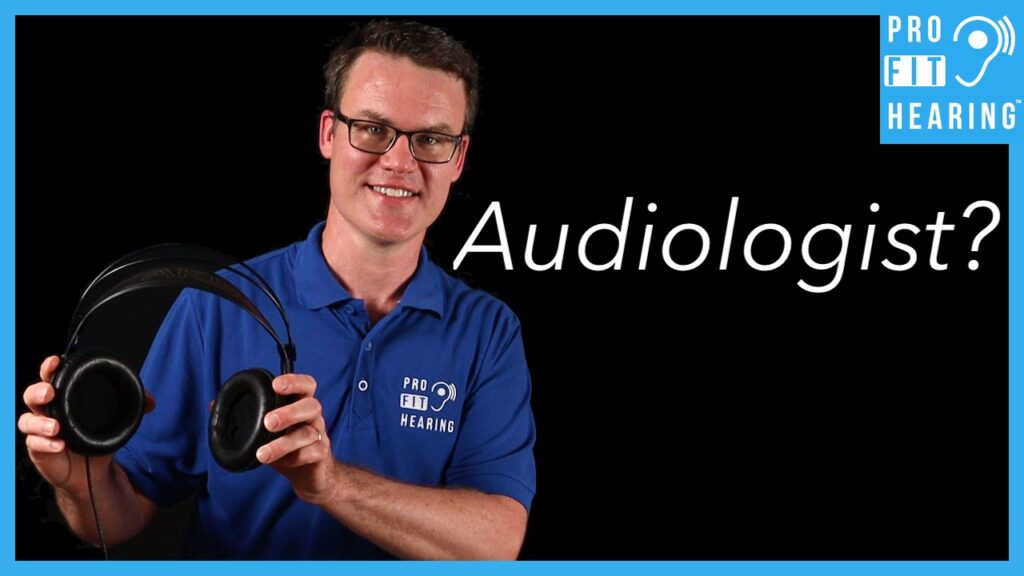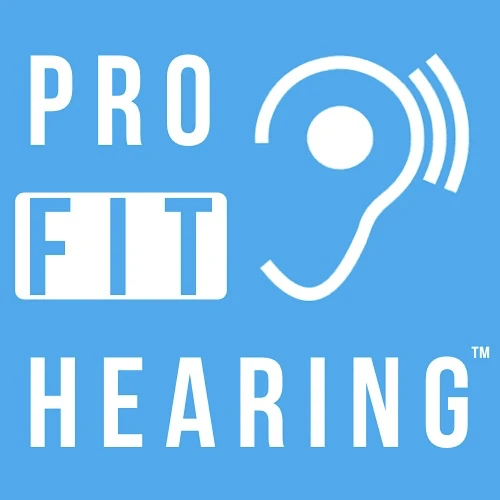What is an Audiologist?-aka Doctor of Audiology

What is an audiologist? Well, they are also known as a Doctor of Audiology and in this post I’ll talk about how they can help you. Coming up!
Please SUBSCRIBE to our YouTube channel for weekly videos! The video link is at the end of this post.
Hi, I’m Dr. Derek, audiologist with Pro Fit Hearing.com bringing you the best insight into today’s latest hearing aids and audio technology to improve your life. If you have concerns about your hearing, always consult with your local physician or audiologist.
Welcome to Question of the Day, Friday where I answer your hearing healthcare and audio technology question.
What is an Audiologist?
What is an audiologist or Doctor of Audiology, and how can they help you?
An audiologist evaluates both the hearing and balance (or vestibular system) of children and adults. They can determine whether hearing loss exists and prescribe hearing aids. An audiologist can also conduct a cochlear implant evaluation along with an Ear Nose and Throat doctor for patients that do not benefit from hearing aids. A cochlear implant user also has regular sound level adjustments with an audiologist. Some audiologists specialize in vestibular evaluation and treatment to help patients with their dizziness or vertigo.
Duties and work settings
Audiologists can also administer electrophysiology testing to diagnose hearing loss in infants and children or to check the integrity of the auditory nerve, conduct auditory research and teach at a university, diagnose auditory processing disorders, make recommendations for hearing protection in loud noise work environments, and provide specialized treatment for tinnitus. They may be found working in a clinical setting, a hearing aid retail location, in the military, at a Veterans clinic, in the school system, in hospitals, and in universities.
Education
An audiologist has either a masters degree or more commonly a doctorate in audiology, referred to as a Doctor of Audiology. This typically requires 6-8 years of college education. They may have either a M.S. or Au.D. after their name. Other common credentials for audiologists include: CCC-A (Certificate of Clinical Competence in Audiology), FAAA (Fellow of the American Academy of Audiology), or ABA (board certified by the American Board of Audiology). To obtain an audiologist license the provider must complete the following: a doctorate degree (or equivalent) which includes comprehensive written and practical examinations, supervised clinical hours, a one year externship under supervision of a licensed audiologist, and a passing score on the national Praxis audiology examination.
An audiologist can provide comprehensive care for hearing loss across all ages and degrees of severity. If you have concerns about your hearing, ask your physician for a referral to an audiologist in your area or contact an audiology clinic directly for an appointment. Check out the link HERE for the audiologist directory.
Question of the Day
So for today’s question, have you seen an audiologist before? Also, what other hearing healthcare or audio technology videos do you want to see? Let’s connect in the comments.
Remember to connect with Pro Fit Hearing on social media. Be a part of the Pro Fit Hearing community!
If you are interested in hearing aids, click HERE for my FREE ebook, “How To Buy Hearing Aids”. Know what to ask your audiologist or hearing aid dispenser so that your hearing aids are easy to use and have all the features you’re looking for.
Remember, Pro Fit Hearing brings you the best insight into today’s latest hearing aids and audio technology to improve your life. If you have concerns about your hearing, always consult with your local physician or audiologist.
-Dr. Derek

